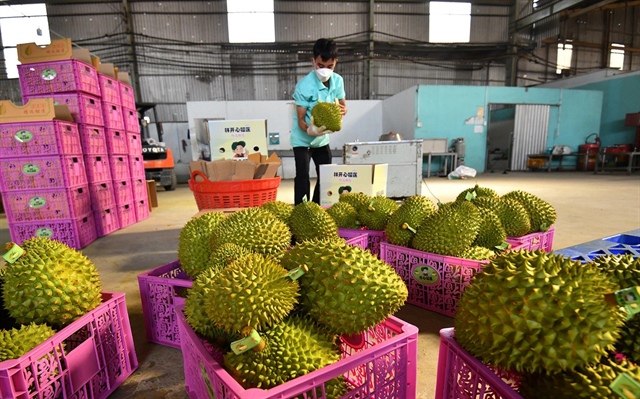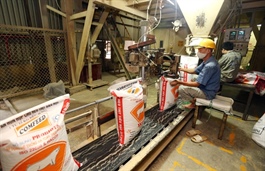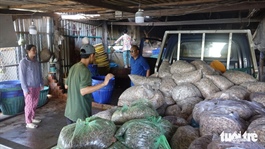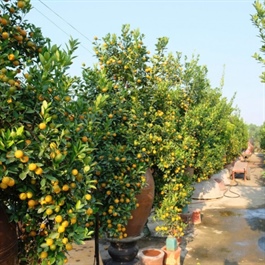Vietnam's durian exports challenged by China's banned substance test rule
Vietnam's durian exports challenged by China's banned substance test rule
Vietnamese durian exports to China have been disrupted due to China’s new requirement for Auramine O certification, introduced after traces of the carcinogenic chemical were detected in Thai durians at the end of 2024.

A worker checks durian for export at an establishment in a southern Vietnamese province. Photo: Hoang Giam / Tuoi Tre |
Consequently, starting January 10, China has mandated that imported durians must provide certification for Auramine O, alongside existing cadmium residue tests.
The Chinese General Administration of Customs implemented this measure to ensure food safety, creating challenges for Vietnamese exporters.
Many shipments have been denied customs clearance, while others have been completely halted, leading to severe financial losses.
Vietnamese exporters, particularly in durian-producing regions like Dong Nai Province, have reported extensive delays.
A local exporter shared that approximately 10 containers of durians have been returned to storage facilities due to the lack of Auramine O certification.
This issue is particularly problematic with the peak consumption period of Tet, or Lunar New Year holiday, approaching.
“With each durian container valued at roughly VND3 billion (approximately US$126,000), the financial impact is immense,” an exporter said.
Hundreds of containers remain stranded at border checkpoints, with some returning to domestic markets or frozen for future use.
The exporter blamed the delays on the lack of testing facilities and clear guidance from Vietnamese concerned agencies.
In contrast, Thailand, facing similar issues, has rapidly established six certified testing centers, enabling their exporters to resume shipments.
According to news site Vietnamnet, after detecting Auramine O residues in Thai durians late last year, China introduced stricter measures requiring imported durians to have Auramine O certification, in addition to the previously required cadmium certification.
Following the detection, hundreds of containers of Thai durians were blocked at the Nakhon Phanom border checkpoint, prompting Thailand's Ministry of Agriculture and Cooperatives to initiate negotiations with the General Administration of Customs of China to resolve the issue.
Last Friday, China resumed import of durians from Thailand after approving six Thai laboratories capable of testing for Auramine O residues.
Vietnamese exporters and associations have urged local authorities to expedite the establishment of certified laboratories for Auramine O testing.
They have also called for transparent guidelines to facilitate compliance with China’s new regulations.
Dang Phuc Nguyen, general secretary of the Vietnam Fruit and Vegetable Association, confirmed that many businesses are facing difficulties exporting durians to China due to the latter's requirement for additional Auramine O inspection certificates.
China has also cautioned that fresh durians rejected for export should not be processed into frozen products, as these will be subject to the same stringent inspections.
"With China inspecting every import shipment, customs clearance now takes up to a week, significantly disrupting Vietnam's durian export activities," Nguyen warned.
Speaking to Tuoi Tre (Youth) newspaper on Tuesday about solutions and instructions for businesses to address China's requirement for Auramine O certification, a leader from the Plant Protection Department stated that ‘the matter has been addressed’ but declined to provide further details.
Auramine O, a synthetic chemical used in industries like dyeing and wall painting, is prohibited in food production due to its harmful effects.
The International Agency for Research on Cancer (IARC) classifies it as a Group 3 carcinogen, with a high potential to cause cancer.
Durian is a key agricultural export for Vietnam, with exports exceeding $3 billion in 2024, a significant increase of $1 billion from 2023.
China remains the primary market, but previous warnings about cadmium residues and non-compliance with phytosanitary regulations have significantly strained trade.




























